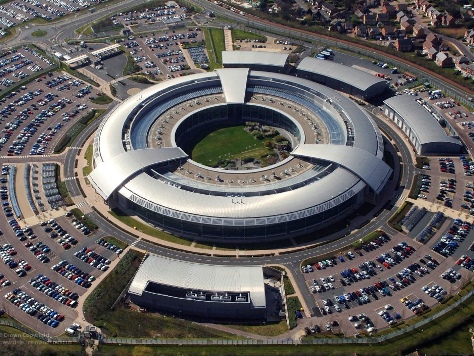A British law that allows the authorities to snoop on journalists has been slammed as “not fit for purpose”, and will be challenged in the European Court of Human Rights (ECHR), Strasbourg.
Lawyers for the Bureau of Investigative Journalism (BIJ), who are bringing the case to the court, contend that the Regulation of Investigatory Powers Act 2000 (Ripa) contravenes Articles 8 and / or 10 of the European Convention on Human Rights, which allow for the “Right to respect for private and family life” and “Freedom of Expression”.
The case has arisen following Edward Snowden’s revelations last year that GCHQ has been secretly collecting intelligence from the world’s largest telecoms companies without their knowledge and storing the information in a secret computer system, code-named Tempora, the Guardian has reported.
Two weeks ago it also emerged that police secretly obtained phone records belonging to the Sun’s political editor Tom Newton-Dunn after he refused to reveal his sources for a story on the Plebgate affair, in which Andrew Mitchell, then chief whip, had an altercation with police guarding the Downing Street gates.
Commenting on that case, a spokesman for the Sun said that the company was “surprised and concerned to learn of this intrusion which we understand was authorised by a police officer rather than a judge for the apparent purpose of exposing a whistle-blower who was ultimately shown to have committed no criminal offence”.
There are laws in place that entitle journalists to keep their sources confidential; however police were able to circumvent that law using Ripa. Vodafone, which provides the phone contracts for the Sun, said that it had no discretion to resist a Ripa request from the police.
The Sun’s spokesman continued “We understand this was achieved, without our knowledge, by the use of police powers under the Regulation of Investigatory Powers Act. This circumvented the normal safeguards in the Police and Criminal Evidence Act, which was designed to give proper protection to journalists and their sources.
“We will be writing to Lord Justice May, the Interception of Communications Commissioner, to ask him to examine how many times and with what justification these authorisations have been made against the media and whether he intends to issue any guidance on the media’s right to keep their phone records safe.”
In an article published on the BIJ website yesterday, Gavin Millar QC, one of three lawyers who filed the case, wrote: “The government uses the Regulation of Investigatory Powers Act 2000 (RIPA) to harvest huge quantities of our data. This includes the content of our digital material and communications. It also includes our communication data (or metadata) – the surrounding information about who we communicate with, how, when, from where and so on.
“There is no targeting of subjects for these investigations by GCHQ (such as particular individuals or premises). Instead there is blanket collection of data in pursuit of broadly identified aims – such as the protection of national security and prevention of crime. Authorisations under RIPA are signed off routinely and on a rolling basis.
“This data is then analysed using hugely sophisticated and intrusive programs to find out whatever it is the security state considers it needs to know.
“RIPA was drafted before we all began to use digital communications and information storage in any meaningful way. It is not designed to protect our rights to privacy and freedom of expression – under Articles 8 and 10 of the European Convention on Human Rights respectively – in the digital age.
“Everyone knows now that RIPA is therefore no longer ‘fit for purpose’.”
Commenting on the legal action, Emma Carr, director of Big Brother Watch told Breitbart London: “The ECHR is absolutely right to investigate claims that the intelligence agencies and law enforcement in the UK have been secretly snooping on journalists.
“The UK has frequently sought to promote a system of values online around the work that defend and uphold our right to privacy and freedom of speech, yet these latest revelations only reaffirm that our domestic policies are undermining this good work. Our Government boldly challenges countries like Russia and China who seek to control and monitor the free flow of information, yet the UK is seemingly doing exactly that. The Government must lead by example or we risk seeing our actions copied around the world at the detriment of millions of people and democracy.
“The Home Office has failed to respond to these allegations fully, nor has it condemned the practice of spying on journalists. The Government must make itself very clear that this is unacceptable in a democracy and that it will ensure full assistance is provided in the ECHR’s investigation.”

COMMENTS
Please let us know if you're having issues with commenting.